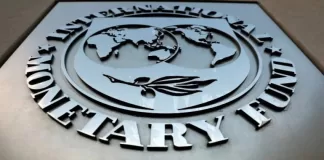The Pakistan Tehreek-e-Insaf (PTI) presented a white paper on the country’s economic state and painted a dire image of the scenario, accusing the coalition government led by the PML-N for sending the economy into a tailspin.
The white paper, which was released on Tuesday at a ceremony in Lahore, claimed that over the previous eight months of the coalition administration, inflation had climbed by 45%.
The Consumer Price Index (CPI), a measure of inflation, increased by 24.5% in December as compared to the same month the previous year, according to data released on Monday by the Pakistan Bureau of Statistics (PBS).
According to the white paper, the Pakistan Democratic Movement (PDM) government’s misguided policies and increasing inflation had made living for the majority of people miserable.
In the statement, the opposition party said that since the coalition government took office in April of last year, all economic indices, including exports, remittances, foreign direct investment, and others, have declined.
It continued that hundreds of workers have lost their jobs as a result of industrial units being compelled to close their production facilities as a result of the dollar shortage and rupee’s depreciation.
Additionally, it claimed that “unwise measures of the government” also hurt the farm sector.
The International Monetary Fund (IMF) provided Pakistan with the highest loan of $127 billion, according to the PTI, and repayment of this debt would consume 37% of Pakistan’s total GDP.
The IMF’s strict conditions have pushed the nation toward default by declining to renew the bailout package, according to the white paper, will result in significant increases in poverty, unemployment, and inflation.
The country’s economy has been in serious trouble since the old ruling party’s ouster in April of last year, according to the former ruling party’s harsh criticism of its competitors, the parties in the PDM.
Also Read
The party has consistently criticised the ruling coalition for making poor economic choices while claiming that it has put in a lot of effort to guide the nation towards economic stability and progress.
The decision to propose economic proposals seemed to be a move aimed at bringing about stability in the midst of a perilous economic environment, even while political tensions between the two groups persisted.





